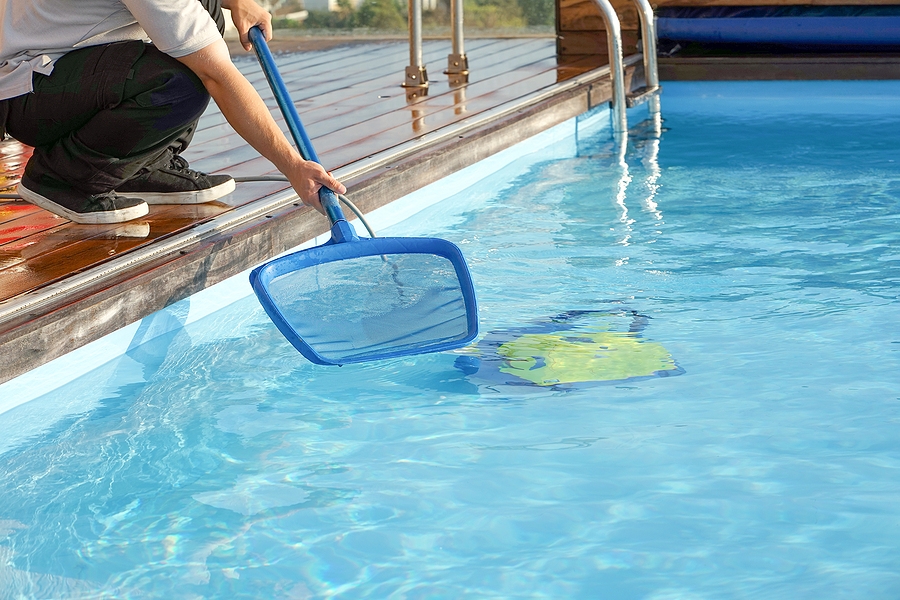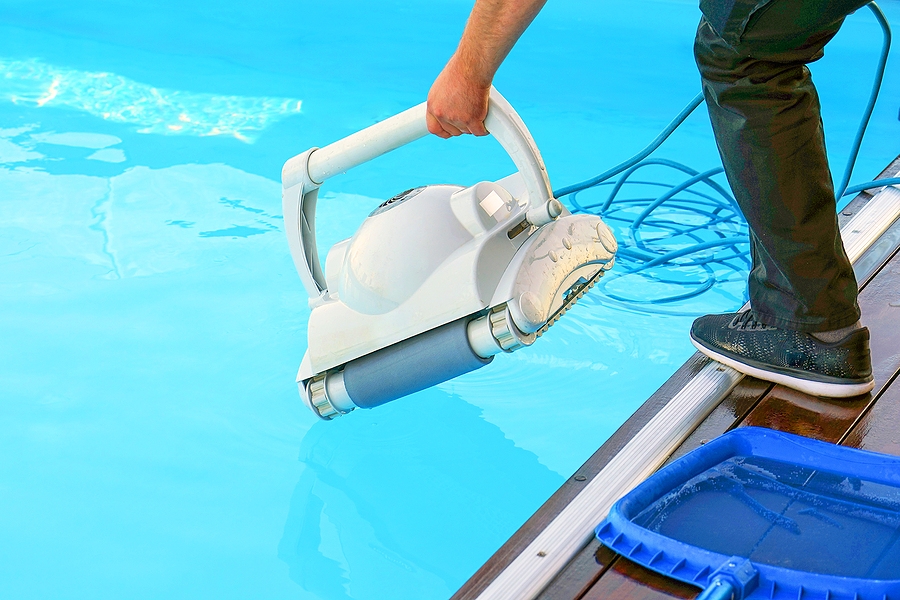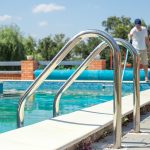A Guide To Pool Maintenance For Beginners
You may have recently installed a pool at your home or are looking to find a job as a Certified Pool Operator®. Either way, you need some advice on pool maintenance for beginners. The complexity of pool maintenance is often underestimated when it actually is quite a complicated process. In fact, many people opt for professional pool maintenance once they’ve gotten a full understanding of the scope. We will start with the basics and work our way up.
What’s In A Pool?
Pool maintenance for beginners starts with understanding the four basic components of a swimming pool. The water chemistry, filtration system, pool surface, and circulation system. Pool water must be kept clean, balanced & clear in order to keep swimmers healthy. Mineral buildup and imbalanced chemicals are also corrosive to the other pool components, so maintaining clean water is important to prolong the life of your investment.
The pool interior or surface always remains in direct contact with the pool water. Just as clean pool water can protect the surface, keeping the surface clean protects the pool water. Algae, debris, and mold can build upon a pool’s interior. It’s the pool operator’s responsibility to keep these surfaces scrubbed clean. It’s also essential to quickly repair any damage that occurs to the pool surface.
A pool filter system draws cleans or filters that water by clearing it of debris and contaminants for swimmers. Without a proper working filtration system, your pool water quickly can become cloudy, contaminated, and unsafe. Filtration systems can use cartridge filters, DE filters, or sand filters. Chemical feed systems with your filtration system can include chlorinators or salt chlorine generation systems. The circulation system is comprised of skimmers that draw surface water from the pool and returns which return the water after being filtered and sanitized.
Water Circulation
The next concept of pool maintenance for beginners to explore is water circulation. Water circulation in a pool can make it more difficult for algae and other contaminants to build up. Pool pump and filter systems keep your pool water from becoming stagnant and susceptible to this buildup. Pool pumps should run at least 10 to 12 hours a day. The more circulation, the cleaner you can keep the pool. Don’t forget to backwash your pool filter when the pressure is high to help improve circulation.
Cleaning The Pool
An article on pool maintenance for beginners simply can not skip over physically cleaning the pool. Even though you have things like water circulation and pool chemicals, you will still need to clean the pool manually with tools like skimmer nets, pool brushes, and vacuums. The pool water should be skimmed for debris, the surface brushed to prevent algae growth and the bottom vacuumed to pick up debris from the bottom. There are automated pool cleaning systems that can simplify the process but you will still need to skim and brush the pool regularly.
Water Chemistry
Just as important as physical cleaning, maintaining the proper water chemical balance in a swimming pool is essential to sanitation. The word balance is important. You cannot just dump tons of chemicals into a pool without measurement. Each element of water chemistry serves a purpose to help maintain safe water. This is why you need to maintain a safe balance of chemicals with your pH levels, sanitizer levels, and alkalinity. The pH of pool water should be between 7.4 to 7.6 and alkalinity should be between 80 to 120 ppm. Sanitizer levels all differ by the type of pool and applicable codes. Don’t forget the need to shock your pool especially after large parties. Pool water needs the occasional boost in sanitation and shocking provides this. Make sure to shock the pool at night so the water can circulate for one turnover before any swimmers enter the pool the next day.
Beyond Pool Maintenance for Beginners
Keep in mind, these are the bare essentials of pool maintenance for beginners. If you would rather have the professionals take care of the job, it’s best to go with a trusted company like Pool Operation Management.
You can learn more about this topic and much more by becoming a Certified Pool Operator ®. The CPO® certification class is a great start to becoming a pool expert. Pool Operation Management’s award-winning CPO certification courses train you how to properly operate a swimming pool.
Our two-day courses offer a wealth of information and training in everything from pool chemicals, to energy conservation to surface water removal. If you have no interest in learning, we can take care of the maintenance with both residential and commercial pool cleaning services! For the very best in everything related to pools, contact us today.








